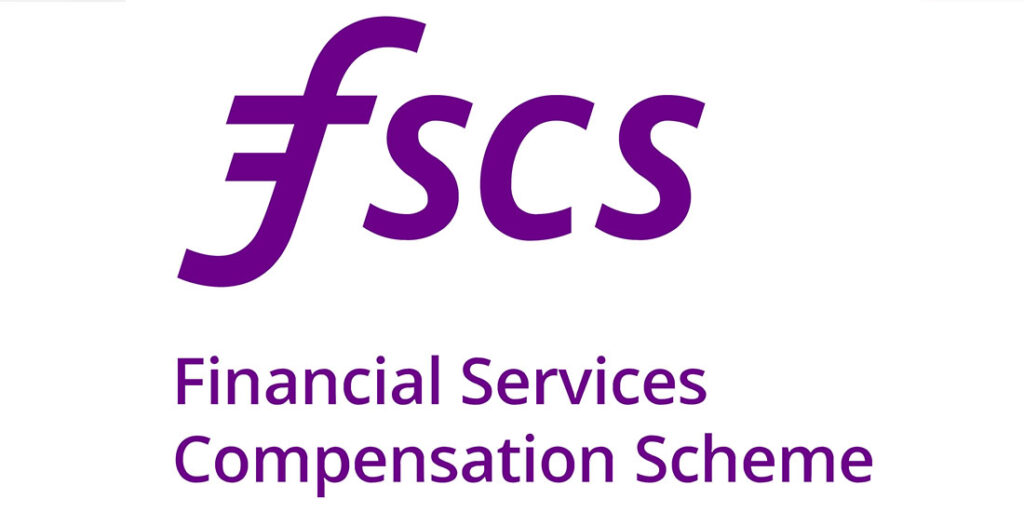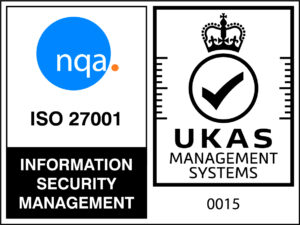Kuflink Celebrates 1 Year Since Gaining FCA Authorisation!
From the very beginning, Kuflink has ensured that each of our investment opportunities meets the highest financial and security standards – that’s why we’re so proud to announce that today marks one year since we gained FCA authorisation!
Financial services providers have to meet strict criteria in order to achieve authorisation, but what does the Financial Conduct Authority’s regulation mean for you as an investor?
What are the FCA’s main duties?
The Financial Conduct Authority has three main functions; to protect consumers, to enhance market integrity and to promote competition amongst firms.
How does Kuflink’s FCA authorisation protect my investment?
The fact that Kuflink is a regulated firm gives investors confidence that we consistently meet the highest industry standards in everything we do, from our underwriting process to our marketing communications. Our operations are monitored and subject to scrutiny from the FCA in order to guarantee that we provide a ‘fit and proper’ service.
Thousands of investors already earn up to 7.2% interest pa gross* with Kuflink, and thanks to our rigorous security processes, none of them have ever lost a penny!
Join the Kuflink community today and make your money work harder for you with our exclusive property-backed investment opportunities!
*Your capital is at risk. Rate correct as of April 2018. Kuflink Ltd is not covered by the FSCS. You should seek independent financial advice.
Peer-to-Peer Jargon Buster
When it comes to peer-to-peer investing, some industry terms can sound a little confusing, although P2P is actually one of the most accessible types of investment – with Kuflink, you can get started from just £100! *
We’ve put together this handy jargon buster to help you ensure you’re up to speed and ready to invest when a P2P opportunity next catches your eye:
Peer-to-Peer: Often abbreviated as P2P, peer-to-peer lending is the process of one business or individual lending money to another, usually facilitated through an online platform. It’s an alternative way of matching borrowers with lenders that, in comparison with most high street banks, provides quicker access to finance for borrowers and higher interest rates for lenders.
Bridging Loans: Think of bridging loans as finance used to ‘bridge a gap’ – they are a quick way to secure funding, which usually acts as an interim measure whilst borrowers explore longer-term options. All loans available to invest in through the Kuflink platform are bridging loans.
FCA: The Financial Conduct Authority is the regulator for more than 56,000 financial services businesses in the UK. Kuflink is authorised by the Financial Conduct Authority, which means you can rest assured that our platform meets the highest security standards, and we are compliant with industry regulations.
Loan-to-Value: Loan-to-value (or LTV) expresses the total loan amount as a percentage of the loan security. For example, if you borrowed £50,000 and gave a £100,000 asset as security for the loan, the LTV would be 50%.
Loan to Gross Development Value: Gross development value refers to the expected value of a development once it is complete, if it were to be sold on the open market. The LTGDV expresses the value of the loan as a percentage of the gross development value.
Anti-Money-Laundering Check: An anti-money-laundering, or AML, check is how we verify the identity of our investors. As part of our FCA regulation, Kuflink must confirm the identity of each investor by requesting their driving license or passport details – this is not a credit check and will not leave a footprint on your credit file.
First / Second Legal Charge: Having a legal charge over a property simply means that, in certain circumstances, you have a right to take possession of, or sell, the property. It might be helpful to think about this in terms of a mortgage – the borrower is the legal owner of the property, but the creditor retains sufficient rights over the property to enable them to enforce their legal charge, should the borrower not keep up repayments. The creditor in this instance can be first in line (first legal charge) or second in line (second legal charge).
Default Risk: We take a number of steps to minimise the risk of a borrower defaulting on their loan. We perform rigorous assessments on borrowers to ensure that we only lend to those who we believe will comfortably meet their repayments. As loans are secured against property, should a borrower default we will take appropriate steps to recover losses. This does not, however, mean your investment is totally safe – your capital is at risk.
Kuflink’s 20% Guarantee: Kuflink are proud to be the only platform in the UK to guarantee 20% of each loan, in the unlikely event of a loss occurring. This means that if the borrower defaults, we will minimise risk to investors by covering 20% of the deal amount on a first-loss basis.
Put your new knowledge to great use, sign up to Kuflink’s online platform today! View our live opportunities and invest in one or many of them to start earning up to 7.2% interest pa gross*.
*Capital is at risk. Rate correct as of April 2018. You should seek independent financial advice.
Open Banking 2018: Stay Ahead Of The Curve
The Open Banking initiative was launched by The Competition and Markets Authority (CMA) in January 2018 on behalf of the UK Government, to stimulate competition amongst financial providers. Research found that ‘larger banks do not have to compete hard enough for customers’ business, and smaller and newer banks find it difficult to grow and access the market’, therefore Open Banking was designed to make it easier for consumers to compare and switch providers.
Open Banking is a huge step forwards for UK FinTech companies, who are often able to deliver higher interest rates than banks but are still unfamiliar to many of us. As greater numbers of FinTech companies gain FCA authorisation, it will be much easier for customers to compare what’s on offer and ensure they get the best deal.
What is Open Banking?
In simple terms, Open Banking is a data-sharing initiative that gives FCA-regulated providers the right to share your financial data with other regulated firms, but only when you have given your permission for them to do so. At present, only the nine biggest high street banks are participating, but this number will grow exponentially as more firms strive to meet the authorisation criteria.
What does Open Banking mean for consumers?
In practice, Open Banking makes it easier for consumers to compare deals and switch accounts – think of apps that could scan your bank account for regular purchases and suggest retailers that offer the same product cheaper, paperless mortgage applications, and the potential to secure credit that is tailored to your financial circumstances.
How safe is Open Banking?
Open Banking applies only to FCA regulated firms, meaning that every firm that has access to your data is bound by strict rules and security procedures.
You’ll still need to give your permission for financial providers to share your information and retain the right to say no to firms you aren’t comfortable with.
Furthermore, you don’t have to give full permission for providers to access all of your data – for example, you may consent to give a budgeting app access to your current account, and they would not be able to view any other accounts you hold.
What does it mean for banks?
Many customers have already been tempted away from traditional bank savings accounts by products such as Innovative Finance ISAs, which typically offer much more competitive interest rates.
Although consumers have always had the option to diversify their money across any number of providers, for many of us, the idea of monitoring multiple accounts sounds like an unnecessary hassle. Open Banking will simplify the process of comparing and switching providers, forcing banks to be more transparent and deliver better deals for consumers or face losing business to up-and-coming FinTech companies.
If you’re keen to stay ahead of the curve, then great news – you don’t have to wait for Open Banking to come into effect to benefit from more competitive interest rates!
You could earn up to 7.2% interest pa gross* by signing up to Kuflink’s FCA-regulated FinTech platform today, where you can invest in peer-to-peer loans secured against UK property.
*Capital is at risk. Rate correct as of April 2018. You should seek independent financial advice.
Interview with Narinder Khattoare, CEO of Kuflink
Kuflink is a peer-to-peer property investment platform that brings borrowers and investors together.
Property vs Pensions: Which is Best?
Ever worry that your pension isn’t large enough to sustain the kind of retirement you’re looking forward to?
On average, British pensioners receive just 29% of their in-work earnings.
This small sum would leave many of us struggling to pay the bills, let alone being able to afford those long-awaited family holidays or treats. Latest figures from the Organisation for Economic Co-operation and Development show that 18.5% of those aged 76+ in Britain are living in poverty.
Those dependant on state funds are the worst affected and, with pensions failing to provide a sufficient income, many retirees rely on property as an alternative source of income.
Buy-to-let property is a big commitment, both in terms of the capital you need to get started and the long-term nature of the investment. Many of us look forward to relaxing during retirement, and there really is no guarantee of ‘a quiet life’ when you invest in rental properties. If you were planning to invest all your savings in property, it’s essential to consider how your finances would hold up should the property become vacant or need substantial repairs.

If house prices fall or stagnate, you could be left responsible for a property portfolio that contributes only a minimal amount towards your retirement income. Even if the housing market continues to boom, your personal circumstances may change and, as property is an illiquid asset, it can be tricky to turn your investments into cash at short notice.
So, if you’re in search of a way to supplement your pension and bring your retirement dreams a little closer to reality, you’ll be pleased to know that buy-to-let isn’t the only way to invest in bricks and mortar…
Kuflink’s innovative peer-to-peer platform offers investors many of the same advantages as buy-to-let, including monthly interest payments and property-backed opportunities, without the hassle of maintenance or deposit costs!
Register today to view Kuflink’s portfolio of exclusive short-term property loans offering up to 7.2% interest pa gross*, and invest from just £100.
*Capital is at risk. Rate correct as of April 2018. You should seek independent financial advice.



